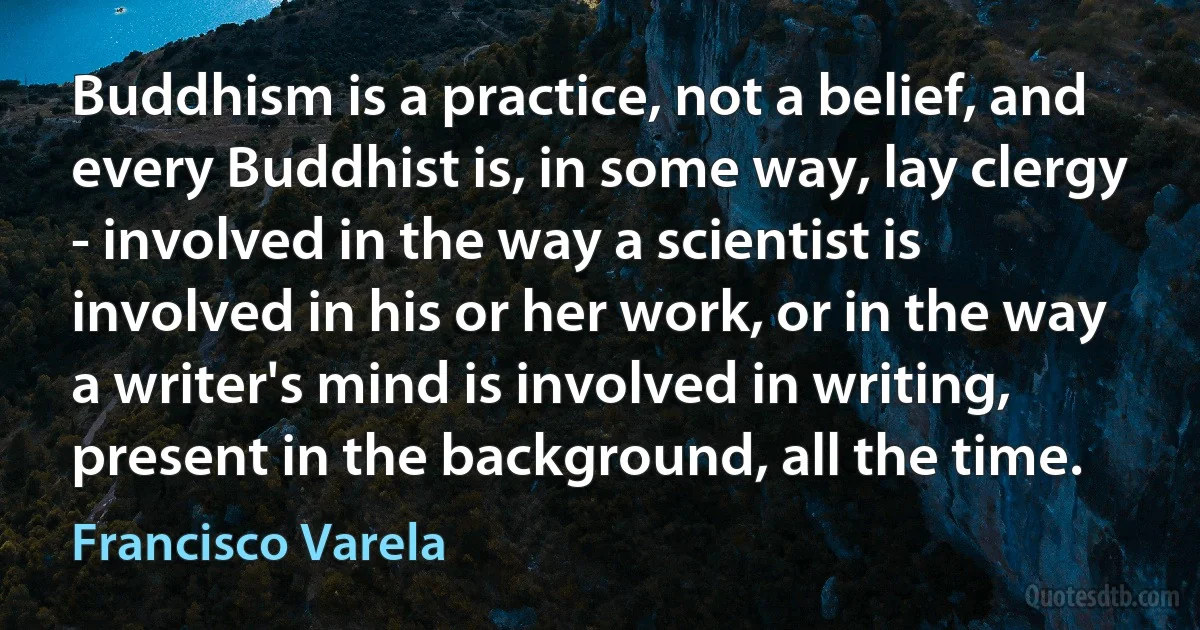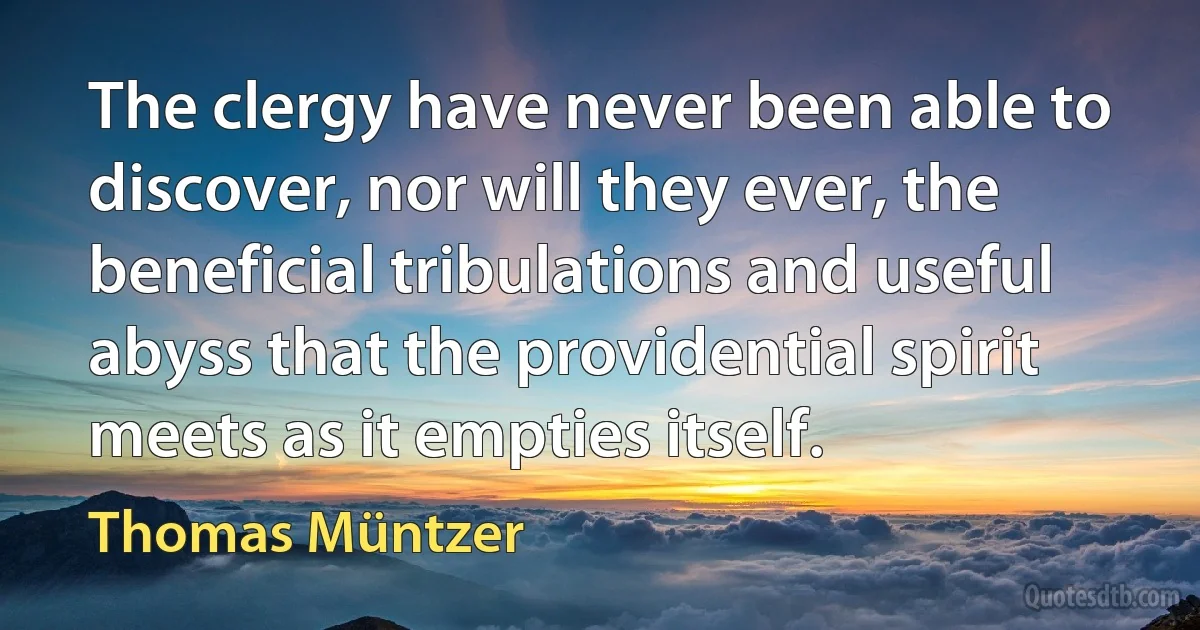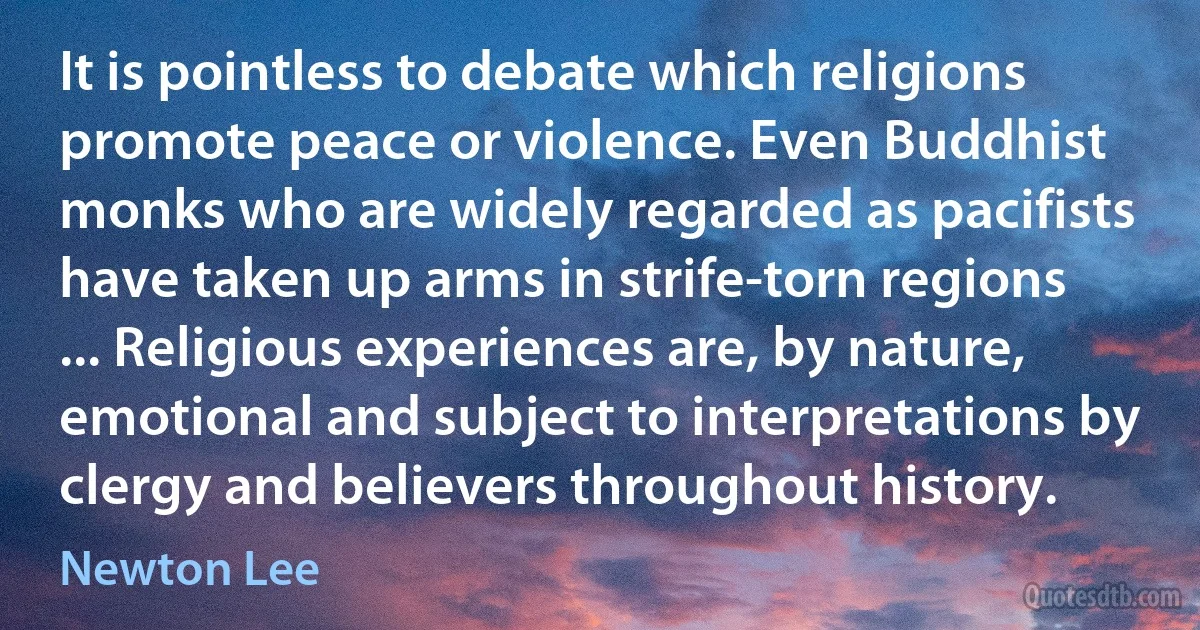Clergy Quotes - page 3
Vice President Johnson, Mr. Speaker, Mr. Chief Justice, President Eisenhower, Vice President Nixon, President Truman, reverend clergy, fellow citizens, we observe today not a victory of party, but a celebration of freedom - symbolizing an end, as well as a beginning - signifying renewal, as well as change. For I have sworn before you and Almighty God the same solemn oath our forebears prescribed nearly a century and three quarters ago.

John F. Kennedy
Devin had never trusted the priests of Eanna in his whole life. They were too shrewd, by far the most subtle of the clergy, by far the most apt to steer events to their own ends, which might lie out of sight, generations away. Servants of a goddess, he supposed, might find it easier to take the longer view of things. But everyone knew that all across the peninsula the clergy of the Triad had their own triple understanding with the Tyrants from abroad: their collective silence, their tacit complicity, bought in exchange for being allowed to preserve the rites that mattered more to them, it seemed, than freedom in the Palm.

Guy Gavriel Kay
Hopeless, filthy, degraded, superstitious with the craven superstition which made them the easy prey of their unscrupulous clergy and left them wholly sensual and stupid; as animals, without the animals' instinctive joy of life and fearlessness of the morrow; with no ambitions for themselves or the children who turned to curse them for having brought them into such a world; with no time to dream or love, no time for the tenderness which makes life, life indeed - they toiled for a few cruel years because they feared to die, and died because they feared to live. Such were the people Turgot was sent to redeem.

Evelyn Beatrice Hall
How rare it is for a woman to support her husband aright in his position in the world, and for husband and wife to work together in complete harmony! During these last seven years Marie has won esteem and affection from high and low alike by her friendly bearing, her sincerity of character and her beneficence; spiritually she has exercised a stronger influence than have the clergy over many ladies and women.

Alfred von Waldersee
Our provost has poured forth some venomous stuff which he has committed to permanent form so that it might be retained. He wrote a letter to me in which he said that tithes were of divine right. I had controverted this publicly, in Latin, however, not in German. Likewise he informs me that the truth is not to be spoken at all times, doubtless thinking that nothing evil ought to be said against the priests. He pleads from the market-place that I should not furnish arms to laymen to use against the clergy.

Huldrych Zwingli
I come to the categorical conclusion that precisely at this moment we must give battle to the Black Hundred clergy in the most decisive and merciless manner and crush its resistance with
such brutality that it will not forget it for decades to come. The greater the number of representatives of the reactionary clergy and reactionary bourgeoisie we succeed in executing for
this reason, the better.

Vladimir Lenin
Social work as a profession is of relatively recent origin. The first social welfare agencies appeared in urban areas in the early 1800s. These agencies, or services, were private and were developed primarily at the initiation of the clergy and religious groups. Until the early 1900s, these services were provided exclusively by the clergy and affluent "do-gooders” who had no formal training and little understanding of human behavior or of how to help people. The focus of these private services was on meeting such basic physical needs as food and shelter and on attempting to cure emotional and personal difficulties with religious admonitions.

Charles Zastrow
No sovereign, no court, no personal loyalty, no aristocracy, no church, no clergy, no army, no diplomatic service, no country gentlemen, no palaces, no castles, nor manors, nor old country-houses, nor parsonages, nor thatched cottages nor ivied ruins no cathedrals, nor abbeys, nor little Norman churches no great Universities nor public schools no Oxford, nor Eton, nor Harrow no literature, no novels, no museums, no pictures, no political society, no sporting class no Epsom nor Ascot Some such list as that might be drawn up of the absent things in American life.

Henry James
There is one tradition in America I am proud to inherit. It is our first freedom and the truest expression of our Americanism: the ability to dissent without fear. It is our right to utter the words, 'I disagree.' We must feel at liberty to speak those words to our neighbors, our clergy, our educators, our news media, our lawmakers and, above all, to the one among us we elect - President.

Natalie Merchant
Many lamented but more rejoiced, and specially such as either had been religious men, or favoured religious persons; for they banqueted and triumphed together that night, many wishing that that day had been seven year before; and some fearing lest he should escape, although he were imprisoned, could not be merry. Others who knew nothing but truth by him both lamented him and heartily prayed for him. But this is true that of certain of the clergy he was detestably hated, & specially of such as had borne swynge, and by his means was put from it; for in dead he was a man that in all his doings seemed not to favour any kind of Popery, nor could not abide the snoffyng pride of some prelates, which undoubtedly, whatsoever else was the cause of his death, did shorten his life and procured the end that he was brought unto.

Thomas Cromwell, 1st Earl of Essex



